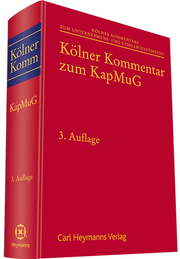Special Education Law Annual Review 2020 (E-Book, EPUB)
Special Education Law Annual Review 2020
eBook - Special Education Law, Policy, and Practice
Bibliographische Informationen
Format: Digitale Rechteverwaltung: Adobe DRM
Beschreibung
This book provides a primer on the (a) dispute resolution system of the Individuals with Disabilities Education Act (IDEA), (b) the U.S. Department of Education, IDEA and Section 504 of the Rehabilitation Act, and (c) online resources to locate special education law. The book also provides a presentation of all policy letters on special education issued by the U.S. Department of Education in 2020 and a synopsis of all special education cases heard by the U.S. Court of Appeals in 2020 brought under the Individuals with Disabilities Education Act (IDEA) and Section 504.
Autorenportrait
DAVID F. BATEMAN is professor in the department of educational leadership and special education at Shippensburg University, where he teaches courses on special education law, assessment, and facilitating inclusion. Dr. Bateman recently coauthoredA Principals Guide to Special Education,A Teachers Guide to Special Education, Special Education Law Case Studies, Special Education Leadership: Building Effective Programming in Schools, and Current Trends and Legal Issues in Special Education.
MITCHELL L. YELL is the Fred and Francis Lester Palmetto Chair in Teacher Education and professor of special education at the University of South Carolina. Dr. Yell has published 134 journal articles, 6 textbooks, and 38 book chapters and has conducted numerous workshops on various aspects of special education law, classroom management, and progress monitoring. In 2020, he was named Researcher of the Year by the Council for Exceptional Children.
KEVIN P. BRADY is professor and program coordinator of the graduate program in educational leadership at the University of Arkansas. He is also adjunct associate professor at Teachers College, Columbia University, where he teaches a course in school law and ethics in the Summer Principals Academy (SPA). He is currently the program director of the University Council of Educational Administration (UCEA) Center for the Study of Leadership and the Law. Dr. Brady is a former member of the Board of Directors of the Education Law Association (ELA) and is on the editorial board of several peer-reviewed journals, including the Brigham Young University Education and Law Journal,Education and Urban Society, Journal of Disability Policy Studies, and Wests Education Law Reporter. Dr. Brady recently coauthored the bookLegal Issues in Special Education: Principals, Policies, and Practices.
Inhalt
Introduction
1 The US Department of Education, the IDEA, and Section 504
2 Policy Letters from the US Department of Education
3 A primer on Dispute Resolution under the IDEA and Section 504
4 Researching Special Education Law Online
5 Topics Covered by US Courts of Appeals in 2020
6 Case Summaries by Circuit
Glossary of Legal Terms
References
Appendix
Index
E-Book Informationen
„eBooks“ sind digitale Bücher. Um eBooks lesen zu können, wird entweder eine spezielle Software für Computer, Tablets und Smartphones oder ein eBook-Reader benötigt. Da es eBooks in unterschieldichen Formaten gibt, gilt es, folgendes zu beachten.
Von uns werden digitale Bücher in drei Formaten ausgeliefert. Die Formate sind EPUB mit DRM (Digital Rights Management), EPUB ohne DRM und PDF. Bei den Formaten PDF und EPUB ohne DRM müssen Sie lediglich prüfen, ob Ihr eBook-Reader kompatibel ist. Wenn ein Format mit DRM genutzt wird, besteht zusätzlich die Notwendigkeit, dass Sie einen kostenlosen Adobe® Digital Editions Account besitzen. Wenn Sie ein eBook, das Adobe® Digital Editions benötigt, herunterladen, erhalten Sie eine ASCM-Datei, die zu Digital Editions hinzugefügt und mit Ihrem Account verknüpft werden muss. Einige eBook-Reader (zum Beispiel PocketBook Touch) unterstützen auch das direkte Eingeben der Login-Daten des Adobe Accounts – somit können diese ASCM-Dateien direkt auf das betreffende Gerät kopiert werden.
Da eBooks nur für eine begrenzte Zeit – in der Regel 6 Monate – herunterladbar sind, sollten Sie stets eine Sicherheitskopie auf einem Dauerspeicher (Festplatte, USB-Stick oder CD) anlegen. Außerdem ist die Anzahl der Downloads auf maximal 5 begrenzt.
Weitere Artikel aus der Kategorie "Recht"
Lieferbar innerhalb 24 Stunden

Lieferbar innerhalb 24 Stunden

Lieferbar innerhalb 24 Stunden

Neuerscheinung






